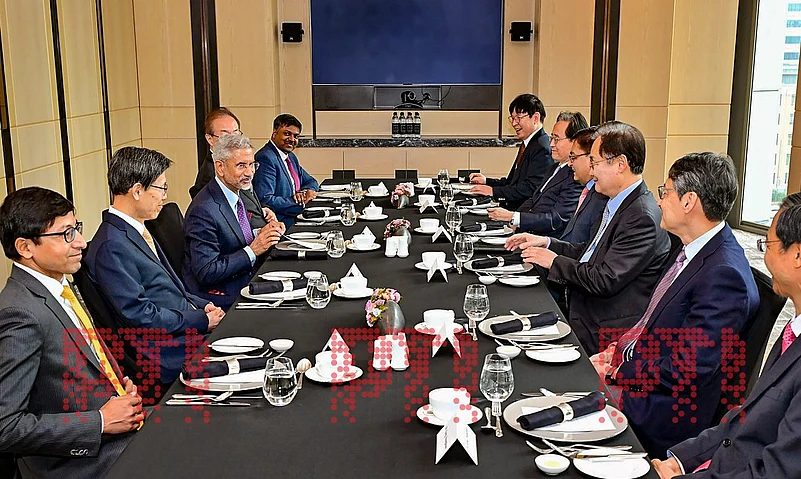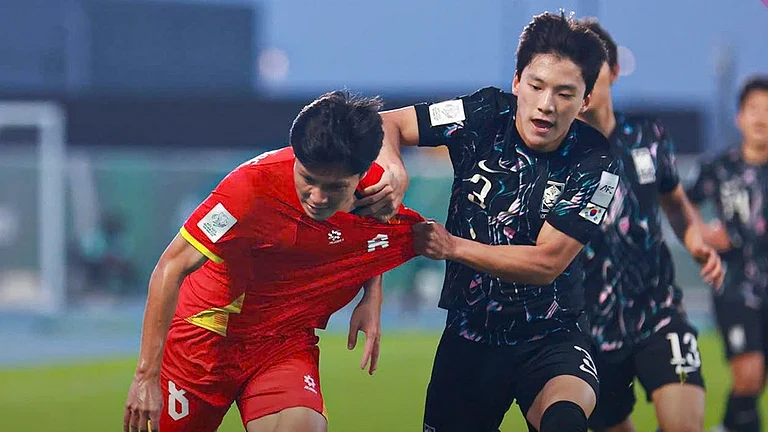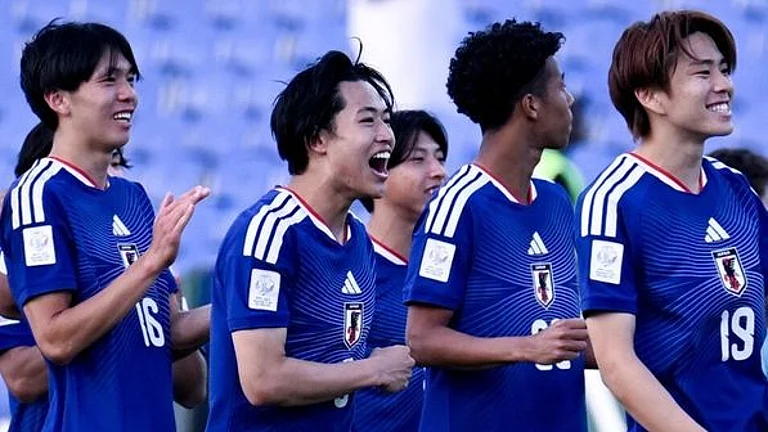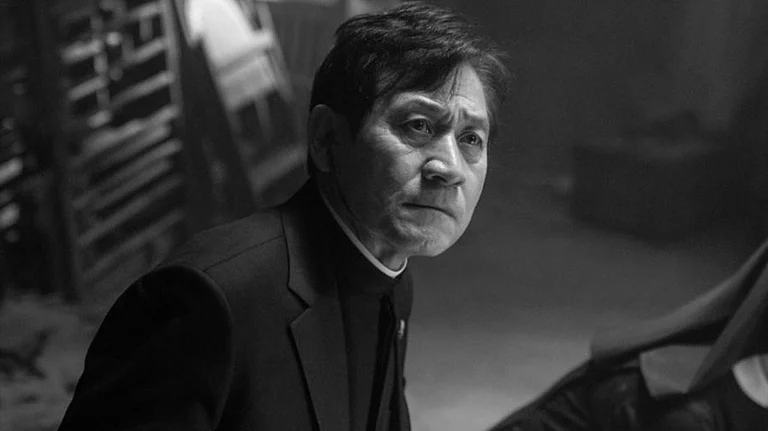India wants to expand its strategic partnership with South Korea into new areas like critical and emerging technologies, semiconductors and green hydrogen to make the bilateral ties more contemporary, External Affairs Minister S Jaishankar said on Wednesday.
Jaishankar said this as he co-chaired the 10th India-South Korea Joint Commission Meeting (JCM) with his counterpart Cho Tae-yul in Seoul. He said the two sides held a comprehensive and productive discussion on cooperation in the fields of defence, science and technology and trade.
"Co-chaired with @FMChoTae_yul a comprehensive and productive 10th India-South Korea Joint Commission Meeting in Seoul today," Jaishankar posted on X. The conversations covered the expanded bilateral ties, cooperation in the field of defence, science and technology, business and trade, people-to-people exchange and cultural cooperation, he said.
"Also spoke of advancing trilateral cooperation. Exchanged views on the developments in the Indo-Pacific, our convergences to challenges in the region and regional & global issues of mutual interest," Jaishankar said.
In his opening remarks, Jaishankar said that during Prime Minister Narendra Modi's visit to South Korea in 2015 the bilateral relations were elevated to a special strategic partnership.
"It is important that we live up to that. We have grown from strength to strength in the years that have passed. We have become truly important partners for each other and our bilateral exchanges, trade, investments, defence and science and technology cooperation have all seen a steady growth while keeping up the momentum in the traditional areas of cooperation," the minister said.
"We would be very much interested now in expanding into new areas, such as critical and emerging technologies, semiconductors, green hydrogen, human resource mobility, nuclear cooperation, supply chain resilience, etc to make our ties more contemporary," he said. He said the two nations witnessed a growing convergence of their views in the international fora.
"The focus on the Indo-Pacific region is good case to point, and we both have stakes and its stability, security and prosperity," he said. Jaishankar said he approached the joint commission with a great deal of optimism and expectation. "I know there is enormous goodwill between us. Our challenge is to translate that into practical outcomes," he said.
"Our leaders met twice last year in Hiroshima and New Delhi. I think their discussions have provided us the guidance to go forward," he added. He also congratulated Cho for his appointment as foreign minister in December. "So let me offer my best wishes for your successful tenure," he said.
Jaishankar is in Seoul on the first leg of his four-day visit to South Korea and Japan. He also met Gimhae City Mayor Hong Tae-yong on Tuesday and discussed greater cultural and educational cooperation with Gimhae City.
"The Gimhae- Ayodhya connect is a testament to our shared cultural heritage and longstanding people-to-people relations," he said. The solid emotional connection between Ayodhya and Korea has been attributed to the story of Queen Heo Hwang-ok (Princess Suriratna).
According to Korean legend, the teenage princess from Ayodhya crossed the ocean in a boat some 2,000 years ago, sailed 4,500 kilometres to Korea and married King Kim Suro who founded the Gaya Kingdom in the north Asian country. The princess, Suriratna, then became Queen Heo Hwang-ok.


























